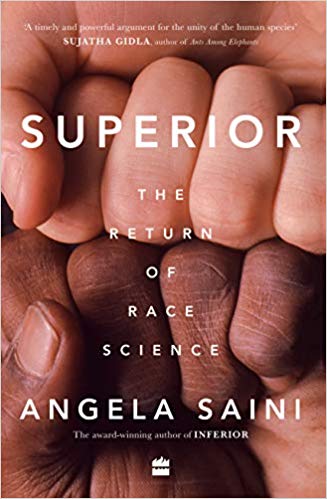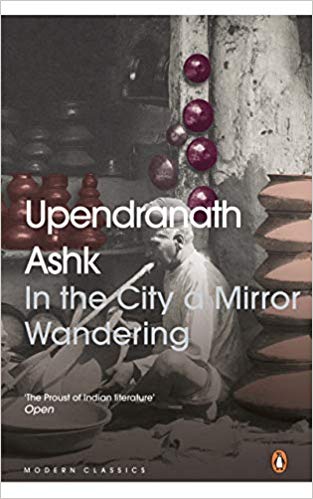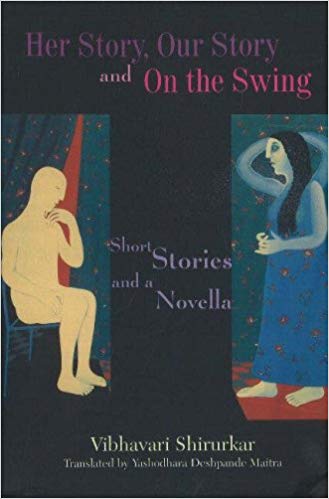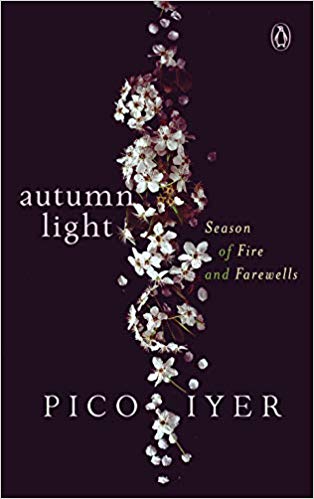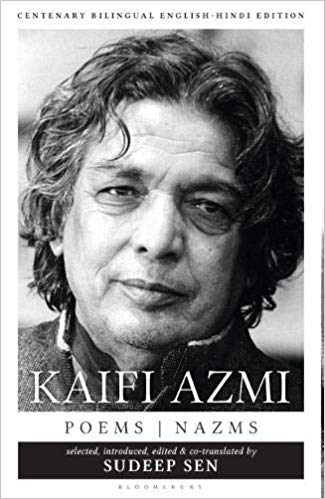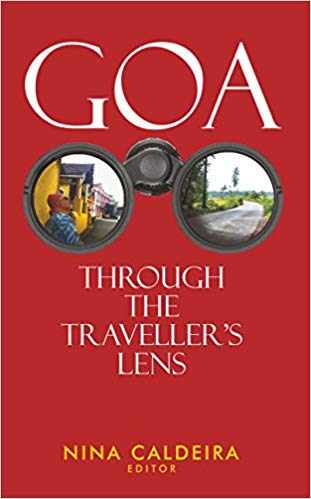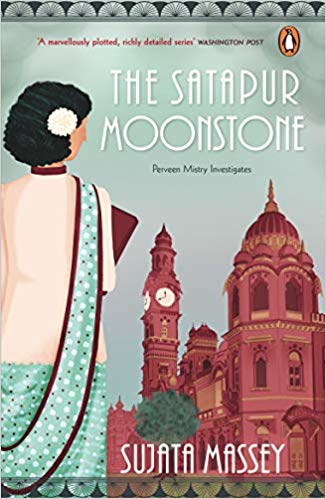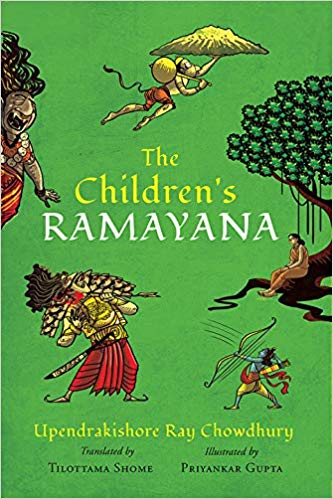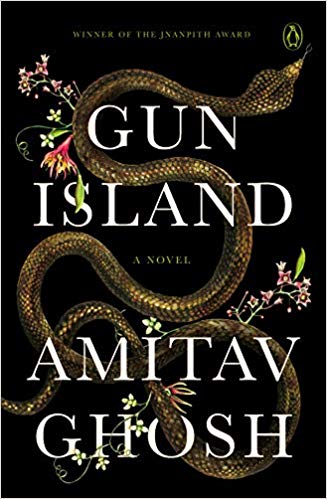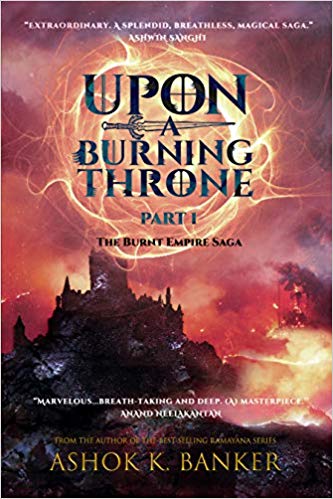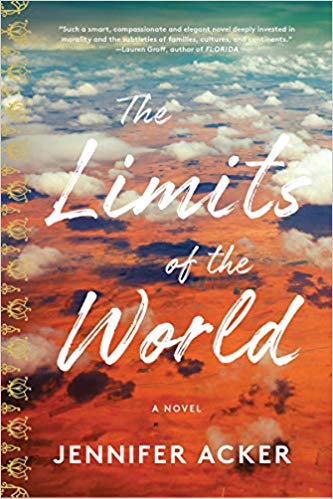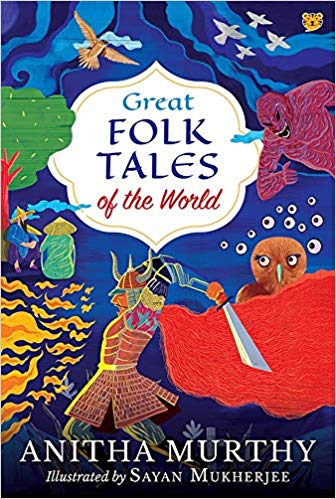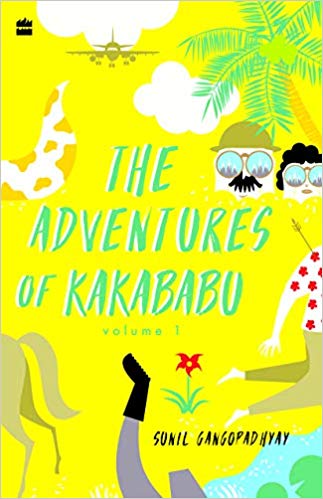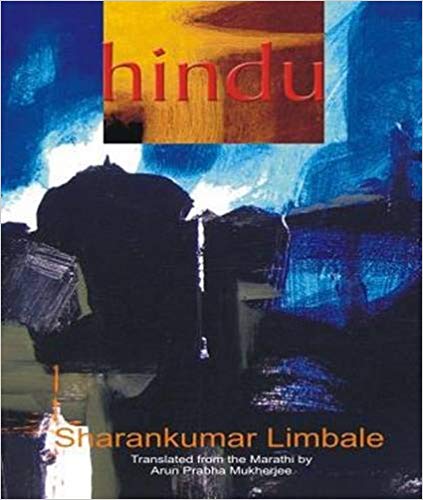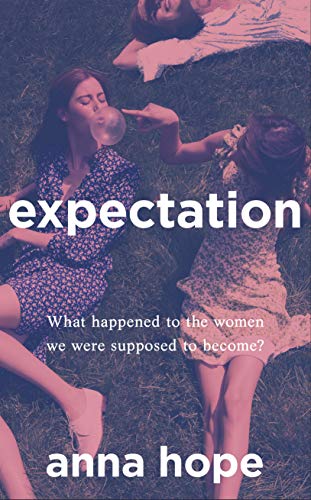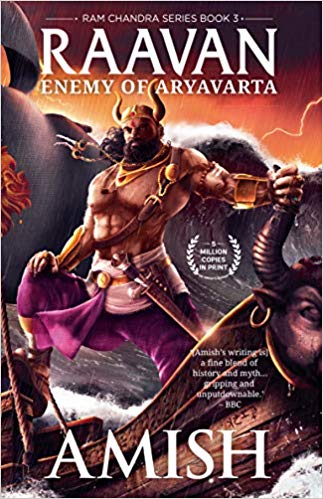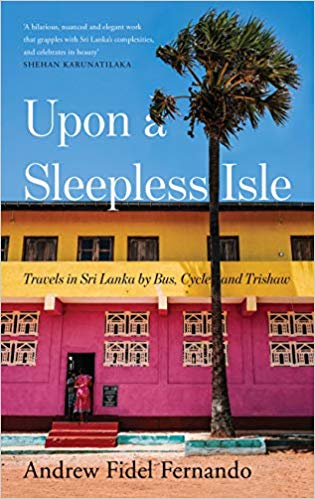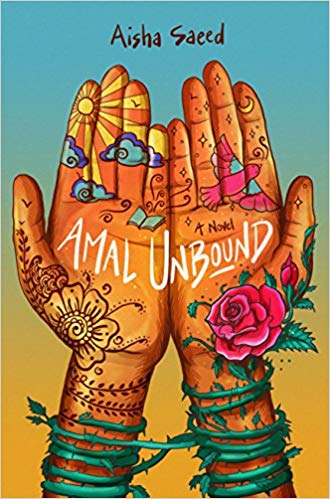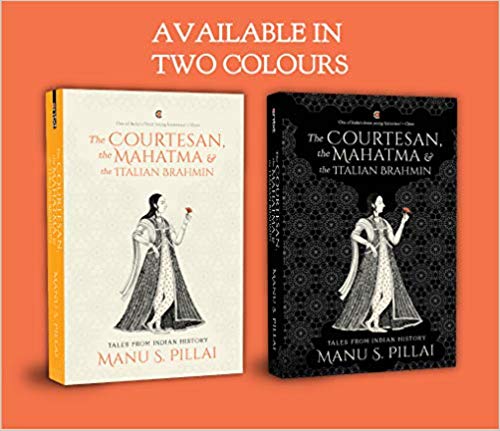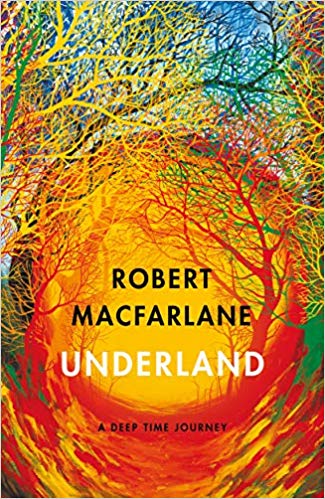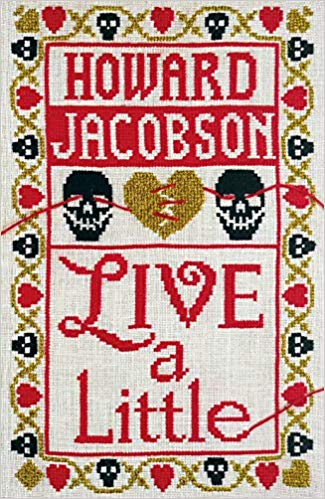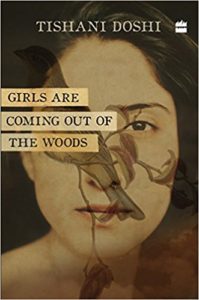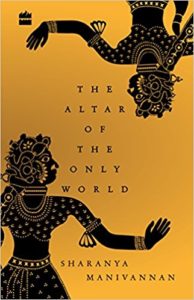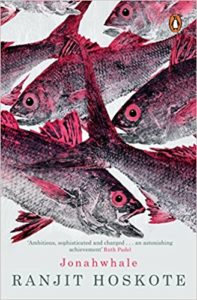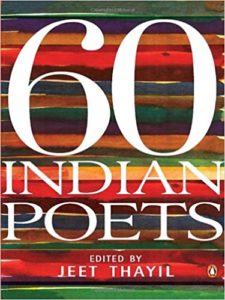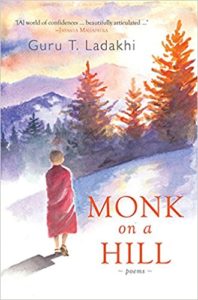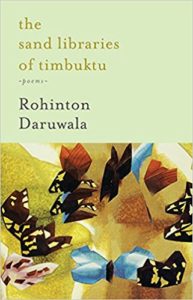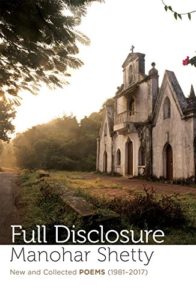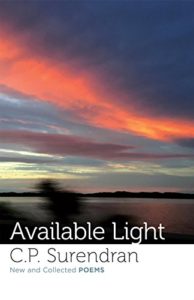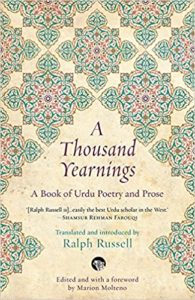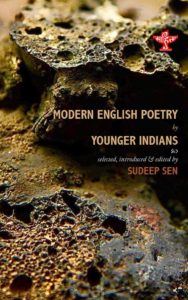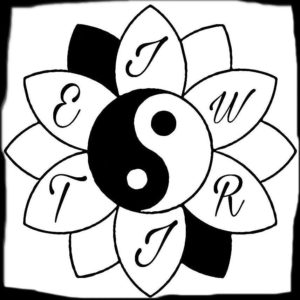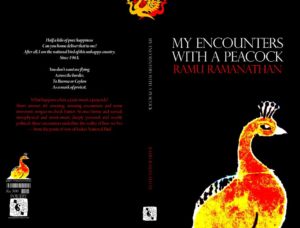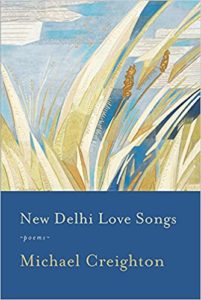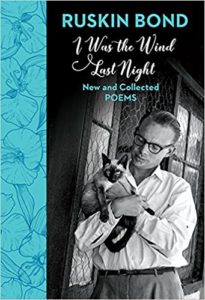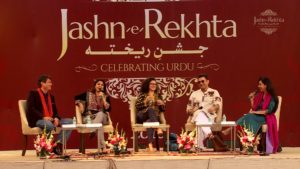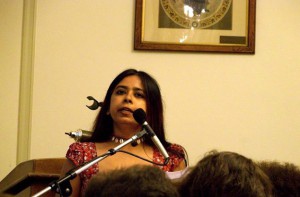 ( I asked a few friends to write about the books they had read and wished to recommend. Here is the first post. It is by Nabina Das, a poet and a writer. Nabina Das, a 2012 Charles Wallace Fellow, University of Stirling, UK, and a 2012 Sangam House Fiction Fellow, has a recent poetry collection Into the Migrant City and a short fiction collection The House of Twining Roses: Stories of the Mapped and the Unmapped. Her debut poetry collection Blue Vessel was listed as one of best of 2012 and her first novel Footprints in the Bajra, was long-listed in the 2011 Vodafone-Crossword prize. A 2011 Rutgers University MFA, a 2007 Joan Jakobson (Wesleyan University) and a Julio Lobo fiction scholar (Lesley University), and a mediaperson for about 10 years, Nabina teaches Creative Writing in classrooms and workshops.)
( I asked a few friends to write about the books they had read and wished to recommend. Here is the first post. It is by Nabina Das, a poet and a writer. Nabina Das, a 2012 Charles Wallace Fellow, University of Stirling, UK, and a 2012 Sangam House Fiction Fellow, has a recent poetry collection Into the Migrant City and a short fiction collection The House of Twining Roses: Stories of the Mapped and the Unmapped. Her debut poetry collection Blue Vessel was listed as one of best of 2012 and her first novel Footprints in the Bajra, was long-listed in the 2011 Vodafone-Crossword prize. A 2011 Rutgers University MFA, a 2007 Joan Jakobson (Wesleyan University) and a Julio Lobo fiction scholar (Lesley University), and a mediaperson for about 10 years, Nabina teaches Creative Writing in classrooms and workshops.)
Poetry listing 2014—NABINA DAS
If writing poetry is a compulsion then reading the same becomes an obsession. And there’s almost no day or night I don’t read a poetry book or at least a single poem or even the fragment of a poem. At times, I read one or two lines and shut the poem or the magazine or the online site just to ponder what I read. Now that the year 2014 is rushing past like a busy moth, its silk turning to wintry woolen weaves, busy against the bright light of events and incidents and festivals that loom in our hearts and fates, I’ve been reading poetry each day and night to keep myself alive on a very metaphysical level. Below is a glimpse of my endeavor. Not all of this poetry is published in 2014. I tend to live by old and new, poetry found and retraced, given and sent away.
Reading Keki N Daruwalla is retracing poetry in Indian English writing. His work is an arc of the beginning and what is now shaping up. Reading lines like
Does the world need maps, where sign and symbol,
standing as proxies, get worked into scrolls? (Map-Maker)
I know the world still remains stratified in layers of time and space, and we grapple with its manifold schemes. Daruwalla’s prayer-like voice rings true for me as I read:
Though there were no words,
fear had a voice with many echoes.
Worship was quieter, adoration
spoke only through the eyes or knees. (Before the Word)
For those that have not yet read Keki N Daruwalla, do pick up his Collected Poems (1970-2005) for a wholesome treat.
Uddipana Goswami’s book Green Tin Trunk (Authorspress, 2014) was a good read this year. The poems crackle like coal fire on winter nights. I could relate to several, being from Assam. There’re a few others I’m still mulling over. Lines such as these bring my Guwahati back to me:
did not know I had to love you then, Guwahati,
When I lived, walked, danced, played, breathed/
In your streets. (Guwahati)
The crisis of identity is mine too, but we know in Goswami’s verse how the poet deals with it:
On the other shore
I am shorn of my identity
I stand half naked
‘You eat human flesh don’t you?’
Nowadays I do not protest
Quietly I pay the price of being
What they are not. (Exile I)
Vijay Sheshadri made news as his 3 Sections: Poems (2013) won the Pulitzer Prize in Poetry. I’ve been reading bits and pieces of Sheshadri even earlier. Although I hunted for this book in India and couldn’t find it right after he became much celebrated in India too, I recently found this Indian edition of 3 Sections: Poems (http://www.amazon.in/Sections-Pulitzer-Letters-Poetry-Winner/dp/155597662X) folks might like to buy. Having ordered it, I went back to reading this below. Mainly because the poet whose book eluded me this long, Sheshadri represented himself in these lines:
I’ve been excited about him as an individual.
I’ve met him as a person, emerging from his own shadow.
Indeed it is remarkable. (Life of a Savage)
And of course, his translation of Mirza Asadullah Khan Ghalib’s No, I wasn’t meant to love and be loved (http://www.poetryfoundation.org/poetrymagazine/poem/185277) had captured my attention because of my love for Ghalib in the Devnagri script; Ghalib, a poet I thought I saw close to my poetics.
Famous poets, prize winning poets, and commended poets abound easily. What does not abound easily is a lucid poet’s gift of her own book that comes as a promise of freshness in voice and tenor. Daya Bhat of Bangalore, in her A Maiden of 29 (Writers Workshop, 2009), effortlessly mixes the high voice of sarcasm with the low intensity cheekiness of an observer of a folly:
I no more care for I am no more me,
Call me by any name; it hardly matters.
It’s your call; it’s your fantasy! (Custom-made)
Bhat’s style is a good application of the vocative case I barely get to see in Indian English writing. It makes her poetry an apt purveyor of both satire and depth.
Elaine Terranova has been my mentor at Rutgers University, Camden, NJ, from 2010-2011. Usually, one reads one’s teacher sparingly. At least I did in high school and college. Much of the student-ness was about smirking and thinking – oh she’s telling me to write the way she does. But I have to confess, Terranova’s poetry and teaching were two different ballgames for me. They overlap as well as go right past themselves. In her Damages (Copper Canyon Press, 1995), a book she gave me as I left for home, I revisited her concern about the body, childhood experiences, and the turmoil of the ‘interior’ – things I thought were unavoidable especially when I saw my daughter growing up to a toddler:
I pass easily where he
is not allowed. Like her, I’m chilled
in my thin gown. There is
a fineness, a definiteness
to her face. This beauty
is her own decision. A TV screen
plays a loop of film, women circling
their breasts with their fingertips,
women staring into a mirror. (Self-examination)
Nilim Kumar is an Assamese poet who has been translated into English by various people, ace poets themselves or novices. The first time I came across his poetry was in The Dhauli Review. Kumar charts a territory in language that is hard reality. Not harsh, rather, lyrical and down to earth:
Whoever has prepared lunch washing and rubbing the blood smeared hands this midday
That meal would’ve been the just match with the dirtiest hunger in the earth
But
The irony is
Hunger is on someone’s stomach (A Poem, tr. Bibekanand Chaudhury)
But the fragrance of a soil and light that his work conveyed to me – not because again, he is from Assam – fascinated me with their juxtaposition with the romantic and the political, particularly, in Five Poems:
Her heart
A tall hill
I caress her
in the form of clouds.
Sometimes
I collide
on her stony bosom
And come down
drenching the trees, foliages,
fields and houses
People say
it is raining (Rain)
I hope to grab a copy of his original collection/s soon.
Having myself been published by Writers Workshop, Calcutta, in 2014, I’m aware how I share space with veteran poets. My own publication prompted me to pick up a 2010 WW volume by Hoshang Merchant, my mentor poet from Hyderabad. Titled Hyderabad Quartet, this is a special volume of Merchant’s collected works. Also special because, this volume acknowledges the demise of P Lal, the main intellectual driver of WW, in 2010. Merchant is fierce and coy both, a quality not very well known in modern Indian English poetry:
Walking down the street of banglesellers
Pleases the woman in me (Holi in Hyderabad)
Reading Merchant is a fresh-mint feeling on the tongue, although I’m not sure he’d approve of the analogy. His urbane chagrin made me wonder why I don’t get to read more lines like this:
Each one has his own dream over coffee
The chef dreams America
The waiter dreams custom
I dream about the waiter (Coffee 6/8/91)
In 2014, one of the loveliest events that happened is that I was privy to a book launch of and poetry reading in honor of Wang Ping, creative writing professor at Macalester, in Hyderabad. Ping’s latest book in its Indian edition was brought to us poets by young Linda Ashok of Raedleafpoetry India. Ten Thousand Waves felt good in my hands. Although as a principle I read new poetry books only after the launch and hype passes away, I took a look inside and didn’t seem to give up reading. Ping’s poetry made me comfortable as someone who mixes registers and images. China or America, hovering spirits or the living, water or its dream, identity or its duct-taping and re-duct-taping – all of that seemed close to what I’ve been doing so far.
And here we are, in the waist-deep sludge
A sac of mud – a tail of greed
Leaching in our stove. (A Hakka Man Farms Rare Earth in South China)
Her metaphors cling to dirt and dust, the imagery dances like coal fire, and the themes of the book read to me like prayers for rice and potato and all that sustains. In prose, dialogues, chorus and verse, this book stunned me at every page:
We know the tolls: twenty-three—Rockaway, NY, fifty-
eight—Dover, England, eighteen—Shenzhen, twenty-
five—South Korea and many more
…
We know we may end up in the same boat (Lin Zhi Fang, Yu Hui: Ten Thousand Waves)
Almost throughout the second part of 2014, I’ve been reading new writing by Seb Doubinsky, professor in Aarhus University, Denmark. But guess where I read most of his new work: it was on Facebook! My reading happened surreptitiously, as though I didn’t want to let anyone know I was reading these little verses – a series – on the social media. Not a bias, just a curious registering of the fact that Doubinsky’s new work was blooming with feedback and quips from his acquaintances on Facebook, an exercise not many poets would undertake and face the rigor of. Consider these:
this poem doesn’t believe
in poetry anymore
it thinks it is vain
pointless and limited
this poem, like Rimbaud in Aden,
wants to stop being written
***
this poem is 100% artificial
absolutely no natural images,
sugar or color added
***
(for Matthew Lippman)
this poem thinks it’s Jewish
but isn’t sure – it might be
Muslim, gypsy or gay
it might even be a woman or
a nine year old working in a textile factory
this poem could be anything
with a sad story to tell
but it sure has a big nose
The good news I got just now is that Doubinsky’s “this poem” bunch would be published by Leaky boot Press in early 2015. I guess from my side, that’s a big “like”!
Even before I‘d met Kazim Ali, who teaches in Oberlin University, at Hyderabad Literary Festival 2012 (HLF), I’ve been reading his poetry here and there. The same continued in 2014. Especially in the light of several global crises – change of governments, such as the deeply rightwing power sweep in India, fundamentalist religious forces like the IS wreaking havoc in the Middle East, women’s and gay issues continuing to receive bashing at home and abroad – Ali’s poetry lifted me up to a zone of light this year. I read from his old and new. Far Mosque (Alice James Books, 2005) and The Fortieth Day (BOA Editions, 2008). Reading Ramadan made my atheist self genuflect again to the cardinal values in human. Compassion for and reflection on life wasn’t ever more meaningful to me:
If the ground-water is too scarce one can stretch nets
into the air and harvest the fog.
Hunger opens you to illiteracy,
thirst makes clear the starving pattern,
the thick night is so quiet, the spinning spider pauses,
the angel stops whispering for a moment—
Kazim Ali will be publishing his new collection All One’s Blue: New and Selected Poems in India soon.
Another poet friend I’d met for the first time in HLF 2012 and shared the stage with, is Robert Bohm. I was familiar with his name but had never read his work earlier. While at the fest we exchanged notes and ideas and I brought back a couple of chapbooks by Bohm – especially, the much acclaimed Uz Um War Moan Ode – in 2014 I merely kept contemplating reading him but never thoroughly did barring a glimpse now and then. All this while, I kept writing to him and his wonderful wife Suman asking about their health and another possible India visit. He even contributed a blurb for my latest poetry collection. It’s only when recently Bohm sent me his latest book Closing the Hotel Kitchen (West End Press, 2011) that I found myself going through this scintillating collection. Bohm said in his Afterword that the poems here had grown out of his experiences with a complex smorgasbord of life: Beat life, army service, Indian connection by marriage, US hypocrisy in war and conflict mongering, Buddhism, brush with life in rural India, death and the façade of divinity.
Don’t ask me the color of the peach blossoms here.
when they fall, they flutter, pale and weightless
like thoughts in a sedated man’s mind,
toward whatever’s below. (Dear Mommy in your Grave at Nassau Knolls)
I’m glad I read Bohm finally – closely, intimately – to feel in my guts the words he had uttered at HLF 2012, during our meeting. The tragic in his voice is stridently upright, seeking a justice in this world:
“Where the fuck is my Bayonet?”
Brown once asked somewhere else.
Can’t think about that now.
Yesterday morning the Guptas saw me in the bus station.
“Are you wanting a place to rest for the night?” the husband asked.
She looked away. (Hospitality)
I’m a frugal and slow reader by disposition. In between all this, in 2014, I also re-read Sudeep Sen’s translation Aria and Billy Collins’ 180 More. Not to forget the timeless modern classic Madhushala. There’s so much to read. The list would get even longer and especially in poetry, one word leads to another, one metaphor leads to a new revelation, and that one poem will only prod me to think for days how language and realization come together to form a brilliant combination we all can cherish and share. Hope you had your own great poetry time in 2014!
(C) Nabina Das
29 December 2014

